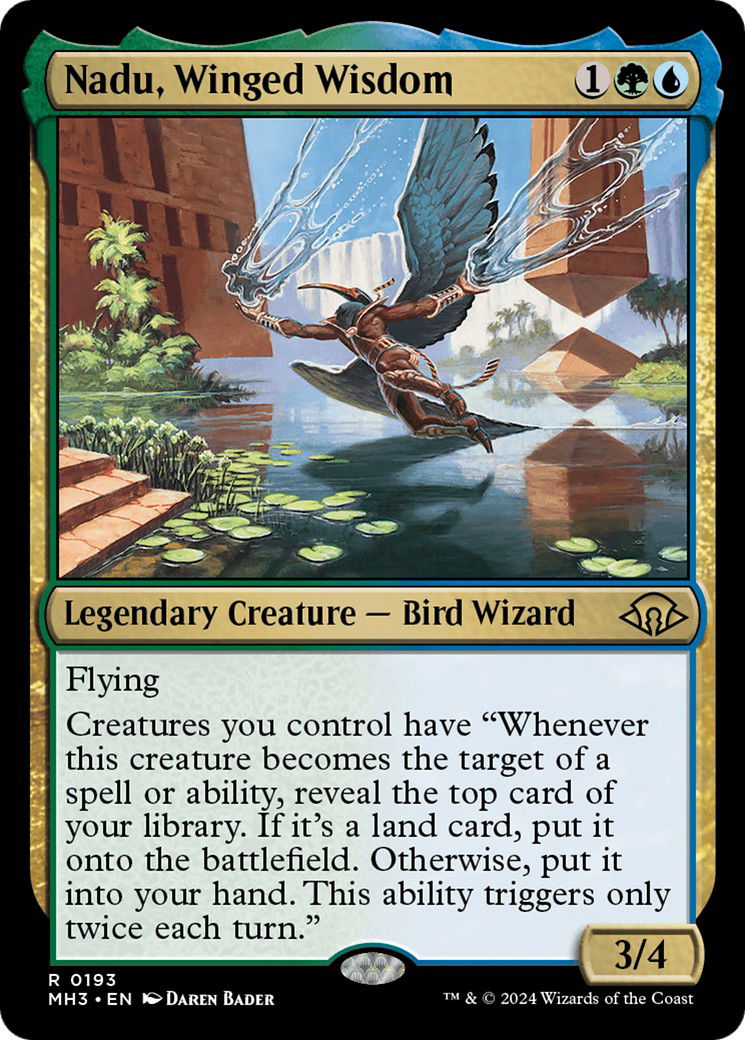Communication is a difficult task. It may not seem like it - we instinctively formulate words using a certain set of sounds or combinations of letters that represent a language to be understood by others. We do this exercise all the time: in conversations at a bar, at work, on social media or here, writing this article. It seems easy, but it is not.
Communicating to make yourself understood is very difficult. For example, to produce this article, I made a thorough study of the topic and planned a script of how to approach it and build an argumentative basis - here, I consider how people can understand what I want to say, and I organize the words that will later undergo a review by myself and my editor, and then be translated and published (the moment you are reading this now).
Anyone who has watched any of my videos will notice how I mix words from time to time. There is no script there. It is a choice, a more expressive and genuine way of presenting my thoughts to the public on a certain subject. It works, but it could be better - perhaps it would be easier for more people to understand me if I planned a very detailed script. The moment I don't do that, I take risks: a misplaced word, a stutter, an abrupt silence because my mind went blank, a curse or even a sentence taken out of context and, let's face it, someone can always look at what you say with a bad eye in the age of social media.
The challenges go far beyond the choice of words or the use, or not, of a script. As Marshall McLuhan said, "The medium is the message." This article, for example, will be a video and will have a different choice of words at certain points while trying to deliver the same message - which will be perceived in very different ways by different audiences. You who are here, reading, are probably inclined to stay with this content and go deeper into it than someone used to fast-delivering audiovisual like TikTok or consuming information in Twitter's 280 characters. The medium is often more important than the content of the message.
Finally, the most obvious, but little discussed, is temporality. Understand the context in which you find yourself, such as a period in which two large TCG communities had major backlashes to banned and restricted updates in their respective games. You know that, for better or worse, this will affect the perception of your message - bringing it forward is taking one risk, leaving it for a later date or within the schedule is taking another. From a business point of view, which is more worthwhile for you?
It may not seem obvious, but since the beginning of this text about communication and even quoting McLuhan, I have been referring to Banned and Restricted announcement made by Legend Story Studios last Tuesday (September 3), considered by some to be the most important update in Flesh and Blood history. And in the midst of a very turbulent maintenance period in TCGs, the game manages to come out of one of the most abrupt changes ever made in its almost five years of existence.
Communication was the key to public acceptance. Understanding the temporal context, knowing what words to use, how to maintain clarity of intentions and assuring players that, despite banning even Art of War, considered one of the great pillars of the game, the future of Flesh and Blood is promising, bright and better for everyone. It is not an easy task - and every TCG should learn something with it.
The Value of Communication: Three Examples, Three Reactions
Banlists are a frequent theme in the TCG universe. Some cards do not turn out as planned, some interaction was not thought through by the design team and no matter how many playtests it has, they don't have the same collective mind as the rest of the community - Mark Rosewater, Magic: The Gathering's lead designer, recently commented on his blog that it only takes one minute with the Magic player base to play with a card longer than the entire design team.
These updates come with a bitter taste. After all, if a card needs to be banned, it is because something went wrong. And if something went wrong, it affected the game and the public's satisfaction with its product. The recent MTG update, for example, was mainly caused by the design mistake made with the card Nadu, Winged Wisdom in the Modern Horizons 3 expansion. More updates would come at some point, but the big trigger for the bans on August 26th was the way the new card created a deck whose gameplay patterns were unacceptable from a competitive standpoint. People were not happy.
Between the end of August and the first week of September, we had banlists in three TCGs: Magic, Yu-Gi-Oh! and Flesh and Blood. All three responded to public dissatisfaction with their game, all three chose different methods of communicating.
Yu-Gi-Oh! followed its banlist pattern: “here are the changes”. Period. No explanations, no need for them. “The changes are absolute, what we think about them or the reasons for them don’t matter”. It’s a choice, in this case, the common choice for Konami. It’s pragmatic, and I dare say, it’s a consensus that explanations will cause more headaches than alleviate the current problem. The community remains divided, there is a consensus on one side that the update was good, but not good enough, and others criticize how YGO’s business model involves this constant cycle of decks breaking the Meta to be fixed in the next banlist.
Wizards of the Coast’s pattern of communicating about its TCG is very corporate. Phrases like “the numbers showed a high win rate for the deck” and synonyms like “this is not the standard we consider ideal for game play patterns” are common even when talking about what is a concern for players, but which will not be banned. There is a lot of distancing and, when reading the text, you imagine someone in a suit and/or a mathematician with glasses saying it as if it were a report. It is a choice, it presents seriousness and impartiality to the detriment of proximity.

This time, Magic went further: they signed a mea culpa. Michael Majors, lead designer of Modern Horizons 3, explained the process of creating Nadu and where mistakes were made - it's a way of clarifying how such a troublesome card came to be while also saying "look, we made mistakes, we learned from that mistake, and we'll try to do things differently in the future". MTG, however, is a game with many modalities: the explanation that everything happened due to a last-minute change caused by concerns about Commander left a bitter taste. What should have been an explanation with the humility of admitting the mistake turned into a public stoning of the design team on social media.
Lastly, we have Flesh and Blood. What the LSS did with the announcement of Banned and Restricted - which, by the way, was a surprise because they decided to forward the banlist scheduled for October - was to condense all the information into a single message and medium. It wasn't just a job of banning and explaining bans, it was saying "this is how we want our game and these are the directions we're taking to achieve it".
James White as Messenger
Choosing a spokesperson, messenger, or whatever you prefer to call them is essential when it comes to breaking news. When a major crisis hits, you probably imagine the anchors of your country's most famous news programs delivering the news - and it's no different for TCGs.

The September 4 update was written by James White, the man behind Flesh and Blood. James is widely known in the community, appears at major events, and is an excellent communicator. He also has another important detail: he is passionate about the game itself, knows his audience well and knows how to speak to them as part of the community, with clear sentences, avoiding corporatism where it is not invited. Again: James White knows how to communicate majestically with TCG fans.
When the game arrived in Brazil, in September 2022, a video of him kept circulating in TCG groups - in it, with a microphone in his hand and wearing his usual clothes, James stated how people needed time to enjoy each product. The message resonated in our community as a counterpoint to the endless releases in Magic that today can range from 3 months to 45 days.
James White is a core of Flesh and Blood's trustworthiness for its audience. If he writes, people trust him. If he is the author, people believe the words, even thought it probably also goes through reviewers, part of the design team and a legal team. It is difficult to build this relationship with hundreds of thousands of people (and it is easy to break their trust). He succeeded, and took the risk of being the spokesperson for the game's most notable banlist to date.
It was a conscious choice, perhaps by James himself or by the Flesh and Blood advisory team. Other notable figures in game design, such as Bryan Gottlieb, could have signed this text. But Bryan, while well-accepted as the game's lead designer, does not have the same charisma in the community that White captivated. Choosing your spokesperson is essential for hard news and crisis management.
Where We've Come From and Where We're Going: Condensing Information
Flesh and Blood still has the advantage of being a relatively small game despite its size. When you grow to the level of the "Big Three", it is common for the company's sectors to be divided even within the same department: ban communication can work at a different pace than event planning and/or publishing texts about game design. The recent case of Magic with its banlist controversy was due to an announcement in the middle of a RCQ season - a planning failure on some ends.
Because it is not so large, FaB has the luxury of condensing its information into single sources. You don't need three different portals and three different links for your announcements on the same day - just put everything in the same place. It is more organized, it is easier to digest, it is easier to not miss out and to fetch every detail.
From the first paragraph of the announcement, White makes it clear that he is there not only to discuss bans, but also about where he wants to take his game and what the consumer needs to know before buying the cards of the next expansion. What has the bans as the most important information soon turns into a text about the design philosophy in Flesh and Blood - the principles of the game, how they were conceived and their purpose, and how they have evolved and/or transformed in the five years since Welcome to Rathe.
It doesn't take long for the text to announce what the fundamental changes are: there is a flaw in the way the game behaves today and the design of certain cards that breaks the resource parity in FaB, creating highly explosive turns like those seen with Zen during the entire Part the Mistveil season - these flaws go against one of the game's core principles (rewarding good decisions) and therefore need to be fixed.
In essence, what the text does is admit that Flesh and Blood is going through the signs of the times: more cards are created, new mechanics and heroes are needed to keep the game innovative, and some old pillars start, over time, to crumble or play a different role than they were originally intended to. Art of War, the most notable ban, was a fair resource exchange until it wasn't anymore and offered card advantage with Blood Debt and burst phase turns, a term in MMORPGs for a short time in which we can maximize resources to cause a lot of damage - the most famous turns in Zen that put it in the Tier 0 position.
James then explains how they intend to work in the coming years. What are the pillars of the design philosophy and what they intend to prioritize in the creation of new cards, in addition to which proposals presented in 2019 are still there and how some of them have transformed. They understood that there was a problem and decided to act against it - the most important point is how they plan OTKs and these "burst turns": you can have them, but you need to work harder to achieve them.
First, the philosophy, then the bans
With everything explained in detail, White finally gets to the point that interests most players: what is banned. The explanations for each card often boil down to how they present a problem for the philosophy and planning presented above. Since some of them no longer fit because there are heroes, cards and abilities in the game that “break” their restrictions or inherent disadvantages, it is a concise explanation which does not require mathematical details - it is not only because Zen is the best deck, it is because Art of War has become stronger and will continue to become stronger every year.
Flesh and Blood has a different logic than other contemporary TCGs in that they prefer to prevent rather than remedy with bans. Nadu + Shuko has been a problem since the card was revealed in the Modern Horizons 3 preview season, Snake-Eyes already showed concerning patterns in Yu-Gi-Oh!. Something could have been done to prevent the situations they created, but it wasn't - both Wizards and Konami preferred to give the game a chance to adapt rather than go straight to the source of the problem - after all, these decisions affect the sales of their product.

LSS takes the more proactive approach. They weren't afraid to ban Duskblade before Tales of Aria came out. They're not afraid to ban Tome of Aetherwind because "there is Kano, but also the new Oscilio", or to deal with Tome of Fyendal despite Dash I/O getting a new product dedicated to her in October. They prioritize integrity over numbers because that's how a game builds good relationships and wins the trust of its target audience - that's how, when mistakes happen, crisis management gets easier.
We can discuss the advantages and disadvantages of each of the proposals and even make value judgments about them. Again, FaB is a new TCG, the same insecurity people have about it not being around for five more years is the same security about not having so many brands and disappointments with the product to the point of losing credibility in the game. Magic doesn't pass in this test because it is 31 years old, Yu-Gi-Oh! has been around since 1999, the honeymoon ends at some point and scars exist in every long-term relationship.
It is possible that the honeymoon with FaB will end, it is possible that at some point the game will make a mistake that its audience will not forget so easily - and a succession of mistakes breaks the trust of even a seasoned player. In the same way, it is possible that the game does not make these mistakes because older TCGs did and there is a learning in this - the creator of Flesh and Blood is a card game enthusiast, of course he knows where they failed and doesn't want to repeat the same mistakes, starting by being more proactive with bans.
Another difference that we see occurring in other games is the anticipation of problems. Crown of Seeds was banned to give more freedom in the design of heroes with Earth talent, Tome of Firebrand and Cash In took a hammer because they present long-term risks - LSS learned that talents have more risks, and they still don't know how to balance them very well, and removing cards that present the same potential for resource disparity that is a problem today means not dealing with them tomorrow - even though they aren't overpowered right now.
"You can still play Art of War"

White ends the text with the section "Their Legend Lives On", a reference to the Living Legend format that is starting to gain traction in the competitive scene and where any hero, including those that entered the Living Legend system, is legal and with a very lenient banned and restricted list.
Art of War is one of the favorite cards of many people. Zen's turns, while unpleasant for the opponent, are very fun for those who like explosive games. Heroes like Chane extract an absurd amount of value from the Arcane Rising staple - saying goodbye to such a core part of the game's history is difficult, and James recognizes that.
Ending the article by saying "you still have a place to play with your favorite cards, and it's not that far away" is a way to console a bitter feeling - any player knew that Zen would suffer another intervention before reaching 1000 LL points, but he wasn't the only one affected, and offering this consolation while also promoting a new format is a good strategy. Marketeer? Maybe, but good.
Every TCG can learn from this example
Flesh and Blood already captivates a notorious number of players and is gradually consolidating itself as one of the main TCGs in the market. In October, the game, which started shortly before the pandemic with the proposal of being 100% in-person, turns five years old. It has faced social distancing, faced the challenges of design mistakes with Monarch, Tales of Aria and Everfest, and now faced a new challenge in banning historical staples from the game in favor of a more optimistic future - and convinced the majority of players, through clear communication, coming from the biggest figure in development, and with well-condensed means to make sure everyone understands it, that this future will be bright.
Every TCG, whether it is one year old, thirty years old or anything in between, can learn something from this announcement. Everyone can learn from something that FaB is doing right to captivate the trust of its audience and, just like James White did with competing TCGs, learn from its mistakes to do better and solidify their space in the market.
I don't know what the next five years will hold, but as long as the design and communication teams work well to keep the game healthy and clear about how things work, Flesh and Blood's future and the trust of its player base in the product seems assured. And that’s what every TCG should, on some scale, strive for.
Thanks for reading!













— 评论 0
, 反应 1
成为第一个发表评论的人